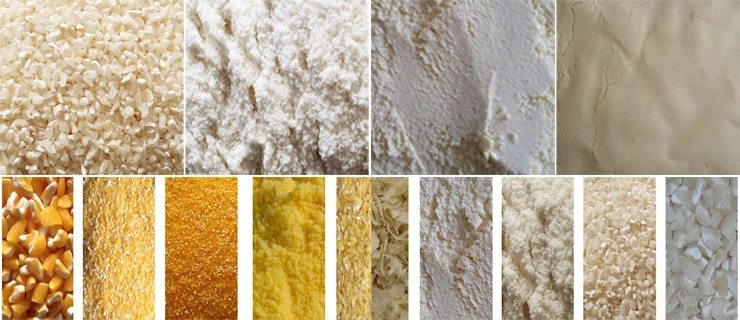What are the benefits of corn mill?
The benefits of a corn mill are as follows:
1. Improved food quality and taste:
- Enhanced fineness and uniformity: A corn mill can grind corn into fine powder with a uniform particle size. This makes the texture of corn-based foods such as cornmeal, corn flour, and corn pasta more refined, improving the overall taste and mouthfeel. For example, when making corn bread, the use of finely ground corn flour can make the bread softer and more delicious.
- Better digestibility: The grinding process breaks down the corn particles, making it easier for the human body to digest and absorb the nutrients in corn. This is especially beneficial for people with weaker digestive systems. (Efficient Maize Meal Grinding Machine for Your Maize Processing Needs from China Win Tone Machinery)
2. Increased processing efficiency and productivity:
- High-speed operation:
Modern corn mills are often equipped with powerful motors and advanced grinding mechanisms, which can process a large amount of corn in a short time, significantly improving production efficiency. Whether it is for a large-scale food processing plant or a small rural processing workshop, a corn mill can meet the needs of rapid processing.
- Continuous processing: Some advanced corn mills can achieve continuous feeding and grinding, minimizing downtime and maximizing productivity. This is particularly important for enterprises that require high-volume production.
(Boosting Productivity and Quality with Win Tone 80-ton per Day Maize Flour Milling Plant) 3. Versatility in product processing:
- Processing various corn products: A corn mill can not only grind corn into flour but also be used to produce other corn products such as corn grits, corn starch, and cornmeal of different particle sizes and textures according to different processing requirements. This provides more options for the production of various corn-based foods and industrial products.
- Applicable to different varieties of corn: It can handle different varieties of corn, whether it is common yellow corn, sweet corn, or other special varieties of corn, and can effectively grind them into the desired products, meeting the diverse needs of the market.
4. Resource utilization and value-added:
- Utilization of by-products: In the corn milling process, some by-products such as corn husks and corn cobs can be further processed or utilized. For example, corn husks can be used as raw materials for making handicrafts or as fuel, while corn cobs can be used for cultivating mushrooms or as organic fertilizers, increasing the comprehensive utilization rate of resources.
- Value-added of corn: By processing corn into various high-value-added products, such as high-quality corn flour for special dietary needs or corn starch for the industrial production of bioplastics, the economic value of corn can be greatly enhanced, bringing more economic benefits to producers and enterprises.
5. Convenience and flexibility for users:
- Suitable for different scales of use: Corn mills are available in various sizes and models, ranging from small household corn mills for family use to large industrial corn mills for commercial production. This allows users to choose according to their own needs and usage scenarios, providing great convenience.
- Easy operation and maintenance: Most corn mills are designed to be user-friendly, with simple operation interfaces and convenient maintenance methods. Users can quickly master the operation skills and perform regular maintenance to ensure the stable operation of the equipment, reducing the difficulty and cost of use.
